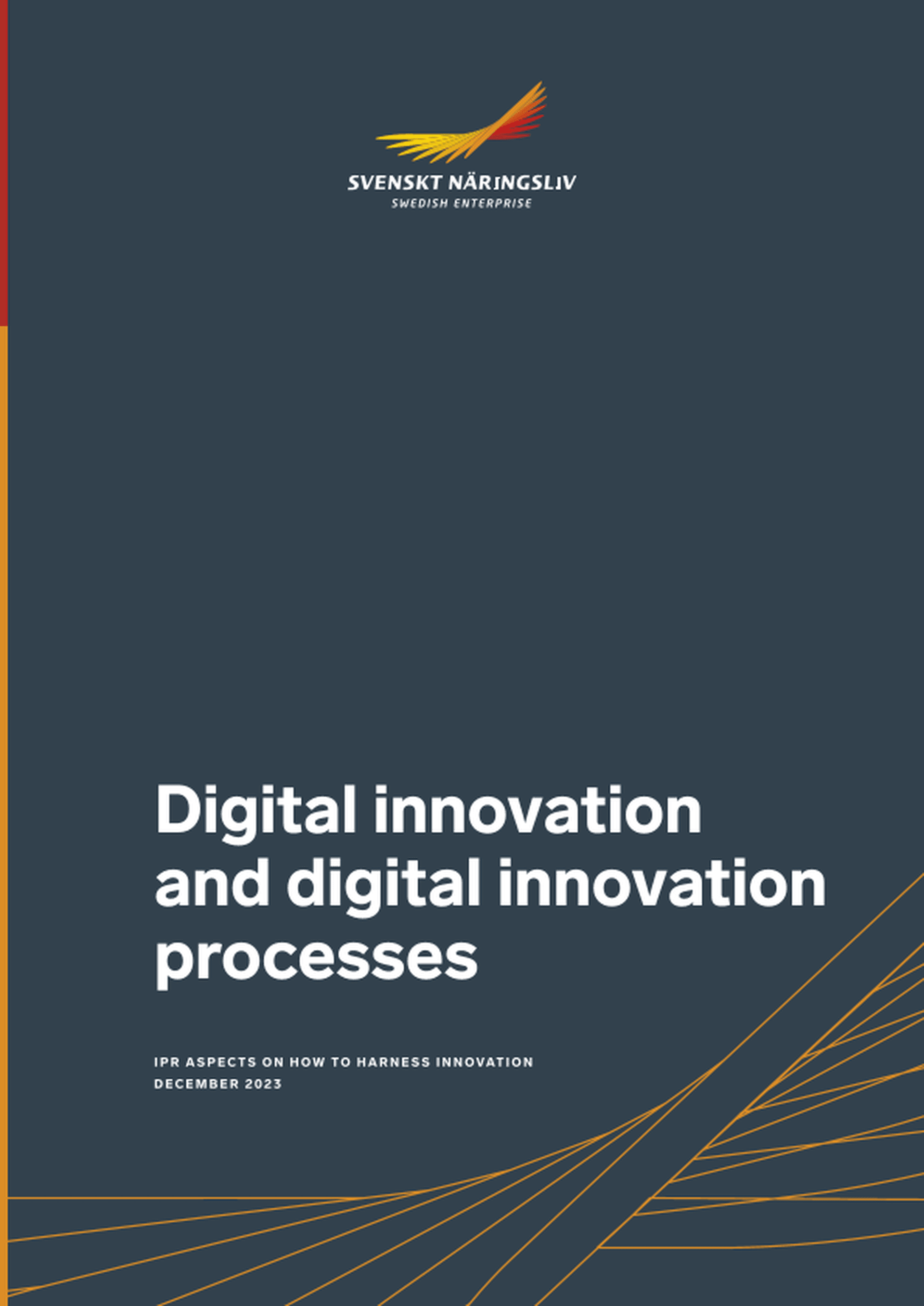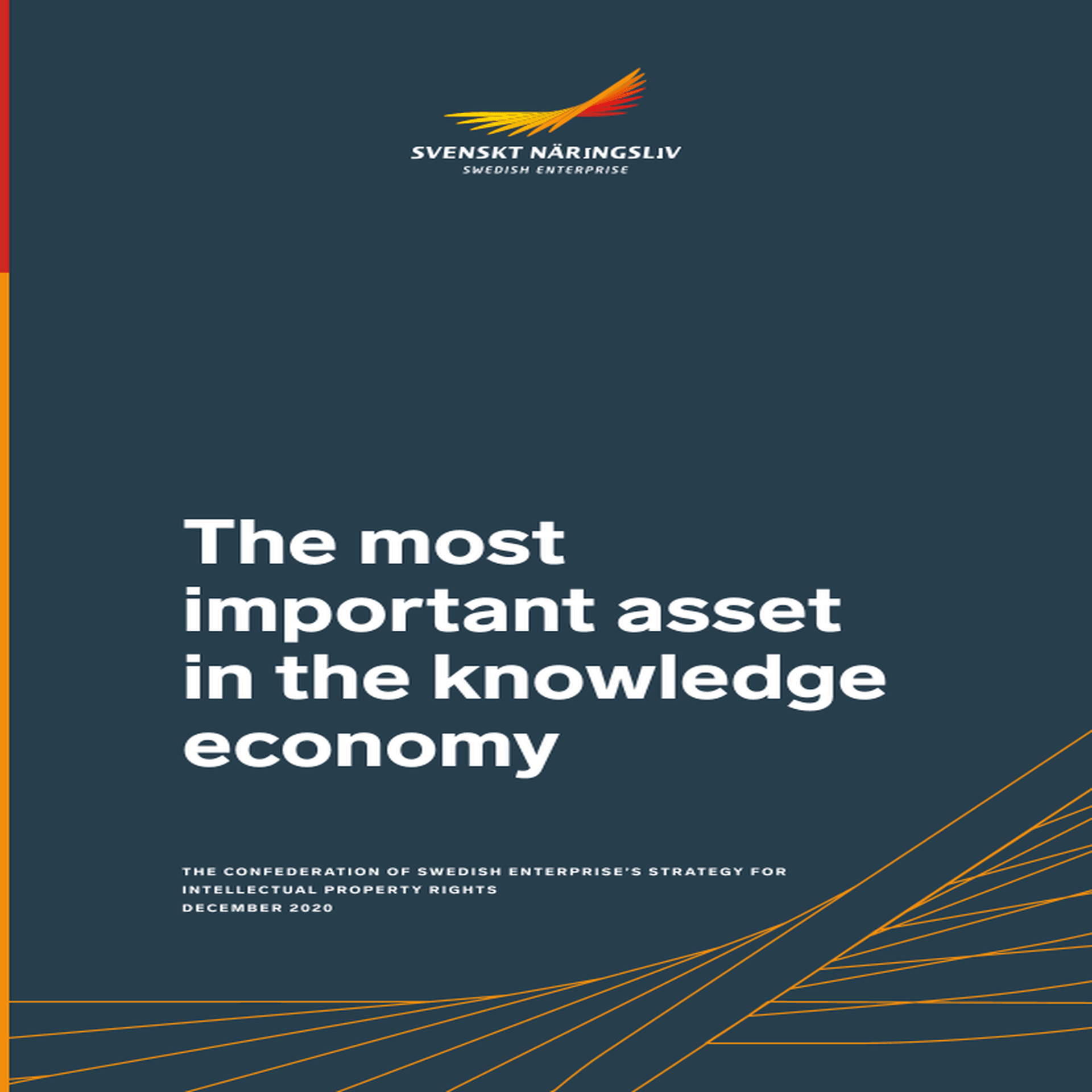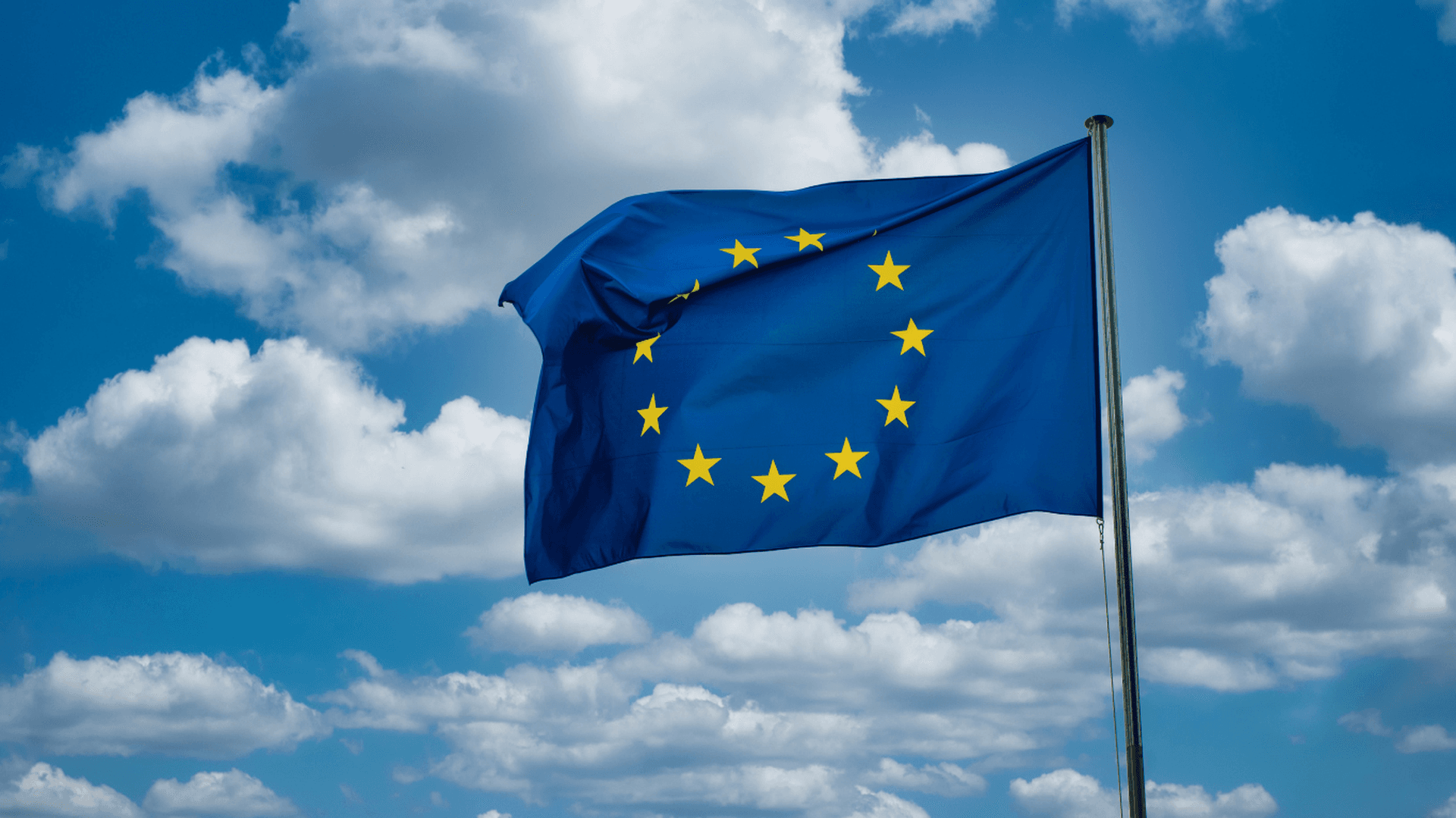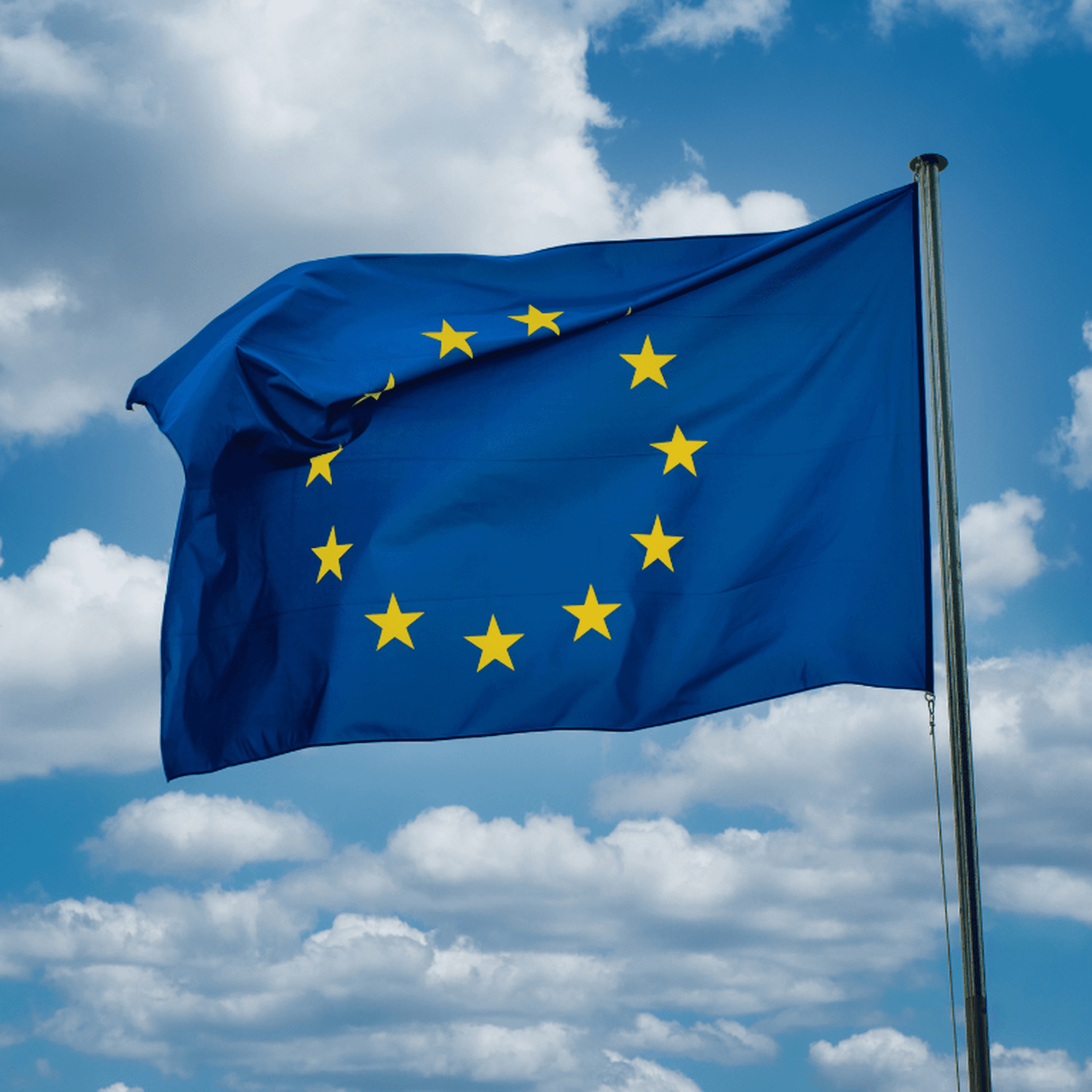The IP Policy of The Confederation of Swedish Enterprise
The strategy developed by the Confederation of Swedish Enterprise will be presented at a series of seminars during 2019 and 2020. We have chosen to focus on the different challenges that we have identified, challenges that influence Sweden and Swedish companies.
Läs mer
The most important asset of the knowledge economy
Knowledge-based assets, such as patents, copyrights and business secrets, have become more and more important. In the knowledge economy these assets are often crucial for companies. Innovative companies use intellectual property rights to protect their innovations and the protection is determines the desire to invest in R&D. Many companies also build their business model around these assets, for example by commercializing innovations through licensing.
IPR-intensive industries represent 47% of GDP within EU and stand for 90% of EU’s exports. At the same time, only 10% of SMEs belong to this category of companies.
The need of a strategy
Several of Sweden’s main competitors in the international market not only have a national strategy of innovation but also a clear strategy on handling of knowledge-based assets. To keep and reinforce the competitive strength it is important that Sweden makes the most of the assets we have and could have. It includes making deliberate choices regarding for example open innovation and/or protection. Questions on intellectual property rights are often seen as legal questions. However, they should be considered from a business perspective and be a part of industrial policy. Until the government takes this responsibility, the Confederation of Swedish Enterprise presents measures that ought to be taken.
The structure and focus of the strategy
The strategy developed by the Confederation of Swedish Enterprise will be presented at a series of seminars during 2019 and 2020. We have chosen to focus on the different challenges that we have identified, challenges that influence Sweden and Swedish companies. The measures that we are proposing will be presented separately, at the seminars for each challenge. What is presented here are the challenges we have identified and the consequences of these challenges.
Challenge 1: Lack of knowledge
The lack of knowledge regarding intellectual property rights has been described in several reports. There is also a lack of knowledge within many companies. This is not only true for Sweden but has also been shown at EU-level. Too many know way too little, so little that they do not even know when to ask for help.
Consequences:
Assets that could exist are never created. Patents and trademarks are not applied for. Copyrights may be held by different actors so that there is uncertainties on who may do what.
Agreements are created that have undesired effects. This is especially true for public procurement, where parties often do not understand the effect of different clauses. The acquirement of rights may be both too small and too big compared to the actual need.
Challenge 2: Not making the most of existing assets
Many (potential) knowledge-based assets are not used the way they can be. Patent information is not used, even when it can lead to great advantages. The support systems for innovation may fail when it comes to handling of knowledge-based assets. Collaboration on R&D is often hindered when agreements on knowledge-based assets are more often considered as an obstacle than a solution.
Consequences:
Investments are made in research that has already led to patents for others. Instead of using patent information as a starting point for research, research is done regarding things that are already patented.
New companies may get advice that leads in wrong directions when it comes to knowledge-based assets.
Collaboration on R&D sometimes is blocked because of difficulties to reach agreements. Results from collaborations may be blocked due to uncertainties regarding the agreements.
Challenge 3: New technical reality
The technical development is very fast. The new technical reality changes the conditions for the knowledge-based assets. So far, this has been the most evident when it comes to copyright. We can however expect the same development for other intellectual property rights as well.
Consequences:
Existing rules are not in line with the technical reality that today’s companies are facing. Innovation and business opportunities are aggrevated by rules adapted to a technical reality that is well in the past.
Challenge 4: Globalization
Our world has shrunk. One example is that we can see that value chains are altered due to globalization. Almost all companies are part of global value chains. In discussions on trade agreements, intellectual property rights often play an important role.
Consequences:
The fact that many countries do not have efficient legislation and/or enforcement in place affects Swedish companies.
Different rules in different countries is an obstacle for international trade. Companies must write different types of agreements for different markets, which cause unnecessary transaction costs.
Different rules in different countries is an obstacle for international trade. Companies must write different types of agreements for different markets, which cause unnecessary transaction costs.
Challenge 5: Rules in need of change
The rules and regulation regarding knowledge-based assets need to be developed. The rules have their background in international conventions from the 1880s. For the competitiveness companies need rules that are up to date. Consequences:
Swedish companies fall behind in competitiveness. They are not able to make the most of their level of innovation and digital maturity.
Do you desire to discuss more on how Sweden and the EU can enhance the work on knowledge-based assets? Do not hesitate to contact Christina Wainikka, Policy Expert Intellectual Property: christina.wainikka@svensktnaringsliv.se
 Nyhet
NyhetThe forgotten potential of SMEs
There are companies whose potential is often forgotten even though they are the backbone of the economy. These companies are the small and medium-sized enterprises. Whenever there is a discussion on competitiveness these companies are often left out of the equation.
Newsletter on knowledge-based assets
Sign up for our newsletter about knowledge-based assets here!
Lost opportunities on digital innovation
There are substantial challenges in the EU when it comes intellectual property and digital innovation. That is the most important conclusion in a recent report from the Confederation of Swedish Enterprise.
Kontaktpersoner

Christina Wainikka
Se kontaktuppgifter
Senaste artiklarna
- Nyhet – 18 juli 2024
The forgotten potential of SMEs
There are companies whose potential is often forgotten even though they are the backbone of the economy. These companies are the small and medium-sized enterprises. Whenever there is a discussion on competitiveness these companies are often left out of the equation.


- Nyhet – 15 april 2024
AI-akten – så ska du som företagare tänka
Ännu finns ingen färdigjusterad lagtext för AI-akten, men redan nu kan företagen förbereda sig. Carolina Brånby, ansvarig för digital policy, går igenom vad som händer framöver.
- Nyhet – 15 december 2023
Lost opportunities on digital innovation
There are substantial challenges in the EU when it comes intellectual property and digital innovation. That is the most important conclusion in a recent report from the Confederation of Swedish Enterprise.
- Rapport – 15 december 2023
Digital innovation and digital innovation processes - IPR aspects on how to harness innovation

- Rapport – 13 november 2023
An updated mechanism for design protection – the need for action
Modernisation of the design protection has of the European Commission been pointed out as an important part of the Intellectual Property Action Plan, which is a part of the Industrial Strategy as presented in 2020.


- Nyhet – 13 november 2023
Trade policy must walk hand in hand with IP Policy
If EU is to stay competitive, it is necessary to make sure that policy of intellectual property is considered in all different aspects of trade policy, Christina Wainikka, expert, Knowledge-based assets, Anna Stellinger, Deputy Director General, International and EU Affairs, write.


- Rapport – 22 september 2023
The most important asset in the knowledge economy
And knowledge-based assets are behind much of what has made Sweden wealthy. However, there are many challenges associated with these assets and how they are managed. That is what this report is about.


- Nyhet – 26 maj 2023
Is the Patent Package really a package?
In 2020, when the current European Commission presented its Industrial Strategy, the Intellectual Property Action Plan was one of the key elements. Since then, there have also been several proposals on how to adapt legislation to better meet the needs of the knowledge economy.


- Nyhet – 1 mars 2023
Scania warns: China will soon be free to steal our innovations: ”Devastating”
Europe’s entire industrial base could be eroded, and jobs lost, warns Scania boss Annika Ahling. A new proposal from the EU will mean that anyone will be able to copy design-protected parts without sanction. ”The manufacturing will now take place in China”, she tells TN.
- Rapport – 18 mars 2022
A design protection for the digital age
Modernisation of the design protection has of the European Commission been pointed out as an important part of the Intellectual Property Action Plan, which is a part of the Industrial Strategy as presented in 2020.

